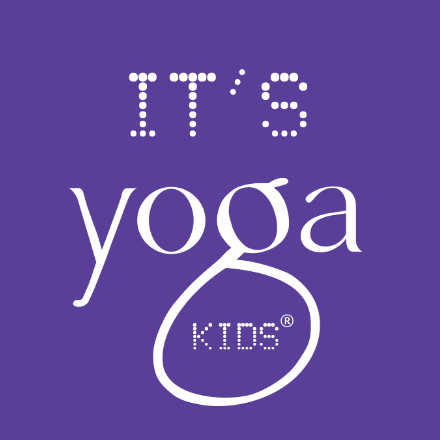
Press PLAY to listen to this post.
When it comes to gifting experiences, one of the best presents you can give a child is the gift of yoga. Yoga offers a treasure trove of benefits for children, from physical health to mental well-being, and it’s something they can carry with them for life. Whether it's a yoga mat, a class voucher, or an online session, yoga encourages kids to connect with their bodies, minds, and hearts in a fun, creative way.
1. Physical Benefits
Yoga helps kids develop strength, flexibility, and coordination. Through poses like Downward Dog, Tree Pose, or Warrior, children enhance their body awareness and posture. Regular practice can even help reduce the risk of common childhood injuries by promoting balance and flexibility.
2. Emotional Growth
Yoga encourages mindfulness, which can help children manage stress and emotions. Breathing techniques, like "belly breathing," can calm nerves and help kids regulate their feelings, whether they’re anxious about school, facing social challenges, or simply dealing with everyday frustrations.
3. Focus and Concentration
In today’s world of constant distractions, yoga is a wonderful way for kids to learn to focus. Holding poses and practicing breathing exercises require attention and concentration, skills that can transfer to other areas of life, such as schoolwork and sports.
4. Social Skills and Confidence
Yoga classes often emphasize group participation, communication, and respect for others. Kids can gain confidence as they master new poses and skills in a supportive, non-competitive environment. Plus, yoga encourages empathy—children learn to be kind to themselves and others, fostering positive social interactions.
5. A Lifelong Practice
Introducing yoga to kids at an early age gives them a tool they can use throughout their lives. Whether it’s to reduce stress as a teenager or maintain flexibility as an adult, yoga becomes a valuable practice that supports well-being long after childhood.
Yoga is more than just a physical practice; it’s a holistic approach to well-being. By giving the gift of yoga to kids, you’re offering them not only a fun activity but also a lifelong tool for self-care, emotional balance, and mindfulness. Whether it's in the form of a class, a book, or a simple yoga mat, this thoughtful gift can make a meaningful impact on a child's development.

Press PLAY to listen to this post.
When I grew up, Madonna belted, “We are living in a material world. And I am a material girl.”
Now, we are living in a digital world. Our kids are digital. And so are we. Our updated logo reflects this shift. There are other significant shifts too...
1 in 6 children ages 6+ struggle with anxiety and depression. And with them, our futures.
Since I started It’s Yoga Kids® in 2005 with my newborn baby, I’ve been reading research that affects children’s and teen’s health and incorporating it into our programs from cradle to college. Two new reports by Commonsense Media illustrate the digital challenges children, teens, families and educators face.
- The Dawn of the AI Era: Teens, Parents, and the Adoption of Generative AI at Home and School
- Unpacking Grind Culture in American Teens: Pressure, Burnout, and the Role of Social Media
In the last two decades, data about children’s health points to increased physical and mental distress and disease. But there is a proven answer. Yoga.
Yoga including evidence-based mindfulness, movement and meditation is most effective at managing performance pressure and reducing anxiety and depression. In addition to the well-known benefits of strength, flexibility, focus and balance, yoga improves self-esteem which is critical to developing more resilient and confident kids.
We all need the success skills only taught in yoga. To make it easier, we’ve modernized and streamlined our website with a new calendar to book classes, camps or a monthly family events benefiting a local non-profit organization. You can also plan a party, or a private, and get yoga at your school.
Most importantly, kids need us as leaders. In my 20 years of teaching, I’ve figured out how to to “do good” for myself, my kids and my community. I can show you how with Warrior Training online at your pace — or live once a year, starting every February.
Give yourself and the kids the best gift ever: healthier and happier futures. Start today at IYK®!

Press PLAY to listen to this post.
I love Thanksgiving because there are no gifts! The true gift is being present together.
Thanksgiving is a holiday full of warmth, family gatherings, and appreciation for the many blessings in our lives. While the day often centers around delicious meals and time with loved ones, it’s also an opportunity to teach children the deeper meaning of gratitude and the joy of giving thanks. Kids yoga can be a fun and meaningful way to celebrate Thanksgiving while cultivating a spirit of thankfulness and mindfulness.
1. Gratitude. Help the children (and the adults) to be thankful.
Kids yoga brings together movement, breathing, and relaxation, which helps children develop focus, manage their emotions, and embrace gratitude. Thanksgiving is the perfect time to pause, reflect, and express appreciation for the simple joys in life. By incorporating yoga and mindfulness, we can engage children in meaningful activities that teach them to be present and thankful.
One idea is to create a “Thankfulness Circle” where each child shares something they are thankful for. Alternatively, they can make a gratitude jar, writing or drawing things they appreciate and adding them to the jar throughout the holiday season.
2. Connection. While politics has divided many families, yoga unites us.
Yoga on Thanksgiving can be a fun way to bring the family together, create meaningful traditions, and teach kids the importance of gratitude. The physical movements help release energy, while breathing exercises and relaxation techniques promote a sense of calm and joy. These practices remind children (and adults!) to cherish the little things and express appreciation for the beauty in everyday life.
This Thanksgiving, celebrate by introducing kids to yoga and mindfulness practices that encourage gratitude and connection. Whether you’re in the living room or out in nature, these activities will inspire kids to move, breathe, and give thanks for the world around them. As you share this special day with loved ones, may your hearts be filled with gratitude and your moments together be full of mindful joy!
P.S. Schedule a private yoga class for your family this holiday season so you can experience the value of movement and mindfulness together. It’s the greatest gift!

Press PLAY to listen to this post.
Does a turkey feel stress? I would think so, but I know that we do!
Thanksgiving is a wonderful holiday full of food, family, and fun, but it can also bring stress and overwhelm for both kids and adults. From the excitement of gatherings to the pressure of holiday plans, emotions can run high. Luckily, kids yoga can be a simple yet effective way to help children manage Thanksgiving stress, find their calm, and reconnect with a sense of gratitude. How?
1. Move that body!
Kids yoga combines movement, breathing, and relaxation techniques that help little ones calm their minds and bodies. By incorporating yoga into your Thanksgiving festivities, you can create a peaceful break from the holiday hustle and set a positive tone for the day. Even just a few minutes of mindful breathing or stretching can make a big difference in reducing stress and promoting joy. Try Mountain-Star (yoga jacks) to burn energy!
2. Mind the heart!
Beyond physical poses, mindfulness exercises can help children focus on the present moment. Try a simple gratitude meditation: have the kids close their eyes and think of three things they are thankful for. This practice shifts their attention from any stress they may feel to the positive, uplifting parts of the holiday.
By weaving in moments of yoga and mindfulness, you can create a more balanced and joyful Thanksgiving for the whole family. Kids yoga not only helps with managing stress but also brings everyone together to share in the spirit of gratitude.
As you celebrate, take time to pause, breathe, and enjoy the magic of the holiday. Wishing you a calm, happy, and stress-free Thanksgiving!
P.S. Schedule a family private this holiday season so you can experience all the benefits of yoga in your own home!
